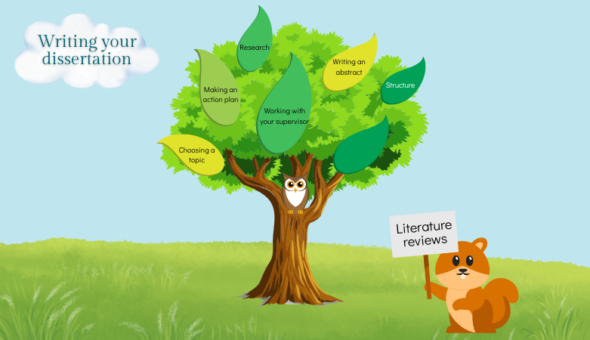If your course is largely essay-based (like mine is with Politics and International Relations) you’ll understand the frustration of receiving the same feedback on your assignments – over and over and over again.
“Be more critical” has got to be a favourite of all academic staff! When I saw the skills enrichment session about improving my ability to respond to feedback, it was a no-brainer to sign up. Here's what I picked up.
The overriding message of the session was how important it is to consider feedback to improve your work and increase your grades and the different ways in which you can receive it.
Peer review
Something I hadn’t really considered before was how useful peer review can be.
Exchanging feedback with two of my housemates has been a really valuable way to get a different perspective on my work, and the advice they give me is often more practical and straightforward to implement than that of academic staff.
Additionally, to do the same for them has been really insightful. Generally, the way we each approach essays differs greatly, so it’s useful to compare different ideas and share thoughts.
External feedback
It's also beneficial to get some feedback from outside of your department.
The Skills Centre runs drop-in sessions on Tuesdays and Thursdays in the Skills Zone (room 6E2.8) from 12:15-13:05 and 13:15-14:05. You’ll be given constructive advice by specialist writing tutors suggesting how to develop your writing technique and style. This is so useful to check you're on the right lines before submitting an essay, or to understand how to improve an assignment that you've already had feedback on.
You can also book a 1:1 writing tutorial on MySkills. It’s useful if you can share any feedback you’ve been given when you book.
Recording feedback
The importance of recording your feedback shouldn’t be forgotten. I know I’ve been guilty at times of reading through the feedback, seeing the mark I’ve been awarded, and not opening the document again.
It’s a great habit to save your feedback file somewhere and keep all of them together where you can easily refer back to them.
There are SO many ways you can do this – you just have to find what works for you!
For example, you can use:
- a physical notebook
- Mahara ePortfolio system
- a digital notebook (like Microsoft OneNote) or
- save into a folder in your documents.
Personally, I like to link the feedback form to my saved document of the essay.
The overall message I took away from the session was the importance of understanding your feedback, so that you can begin to actively improve for the next time.
There are so many resources available to enhance your writing skills – the Skills Centre, Library, and peer feedback.
Getting a wide range of feedback and support means you're likely to improve time after time!
If you want to learn more about how to use your lecturers’ feedback, the Skills Centre has a created a short ‘Engaging with feedback’ self-access resource.
Respond



